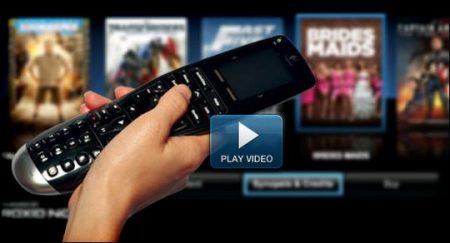1) Has Internet criticism made a significant contribution to film culture? Does it tend to supplement print criticism or can it actually carve out critical terrain that is distinctive from traditional print criticism? Which Internet critics and bloggers do you read on a regular basis?
1) a. Significant and profound. Because the changes it has wrought are ongoing and unfolding, it’s still hard to have a comprehensive fix on them.
1) b. It can and does do both. By broadening the playing field in terms of players, methodologies, audiences, social formations, and outlets, it certainly expands the options. The interactivity of almost immediate feedback, the strengths and limitations of being able to post almost as quickly as one can think (or type), the relative ease of making screen grabs — these and many other aspects of Internet discourse are bringing about changes in content as well as in style and form, shape and size.
1) c. Here’s just a sample: To varying degrees (some much more regularly than others), I like to read Acquarello, David Bordwell, Zach Campbell, Fred Camper, Roger Ebert, Flavia de la Fuente, Filipe Furtado, Michael E. Grost, Andy Horbal, Christoph Huber, David Hudson, Arianna Huffington, Kent Jones, Dave Kehr, Craig Keller, Glenn Kenny, Naomi Klein, Roger Alan Koza, Laila Lalami, Kevin Lee, Adrian Martin, Dave McDougall, Mark Peranson, Quintín, Andy Rector, Lisa Rosman, Alex Ross, Girish Shambu, Brad Stevens, Terry Teachout, Alexis Tioseco, and Noel Vera. Some of these writers don’t have blogs of their own and some aren’t even film people, but I’ve included them if what they’ve had to say occasionally relates to my film interests.
2) How would you characterize the strengths and weaknesses of critics’ blogs? Which blogs do you consult on a regular basis — and which are you drawn to in terms of content and style? Do you prefer blogs written by professional critics or those by amateur cinephiles?
2) a. The strengths and weaknesses of most critics’ blogs relate to the fact that they aren’t edited — apart from a few like The Chicago Reader blogs, whose strengths and weaknesses relate to the fact that they are edited (or at least the initial posters are edited, if not the respondents).
2) b. The film blogs I read or consult most regularly at the moment are those maintained by three Davids (Bordwell, Hudson, and Kehr) and Girish. I tend to read Bordwell and Hudson more for content than for style; among the bloggers whom I tend to read more for style than for content are Glenn Kenny, Quintín, and Lisa Rosman.
2) c. I have no idea what differentiates “professional” film critics from “amateur” cinephiles, apart from the fake credentials dispensed by institutional bases — or the fact that “professionals”, whether they’re academics or journalists, don’t have to be cinephiles, don’t have to know anything about film, and don’t have to know how to write or do research in order to be regarded as “professionals” within their respective professions.
As for those with blogs, I prefer those who are cinephiles, know something about film, and know how to write and do research, such as Dave Kehr, even if he didn’t make it into Phillip Lopate’s American Movie Critics collection. I regret that many of the best film critics and film scholars that we have — including Thom Andersen, Raymond Bellour, Janet Bergstrom, Nicole Brenez, Manohla Dargis, Bernard Eisenschitz, Manny Farber, J. Hoberman, Alex Horwath, James Naremore, Gilberto Perez, Donald Phelps, and François Thomas — aren’t bloggers, at least as far as I know.
3) Internet boosters tend to hail its “participatory” aspects — e.g., message boards, the ability to connect with other cinephiles through critics’ forums and email, etc. Do you believe this “participatory” aspect of Internet criticism (film critics form the bulk of the membership lists of message boards such as a film by and Politics and Film) has helped to create a genuinely new kind of “cinematic community” or are such claims overblown?
3) Within my own experience, I would say that the “participatory” aspects of film writing, including criticism and scholarship, have helped to create a new form of community, and I would further submit that those who consider this claim overblown probably haven’t been participants or members of this community, except indirectly. (I’ve written about this topic elsewhere, in “Film Writing on the Web: Some Personal Reflections,” in the Spring 2007 issue of Film Quarterly — an article that ironically can’t be accessed online.)
I hasten to add that my own recently launched Web site doesn’t invite or allow other participants to post, which suggests that my feelings about this community aren’t entirely or exclusively positive, by any means. Nor would I argue that the communities that have formed are always democracies, or that some of these communities wouldn’t have been formed without the Internet. (A 2003 collection that I coedited and contributed to — Movie Mutations: The Changing Face of World Cinephilia, which is very much concerned with such formations—initially took shape before any of us had email, but email certainly helped us during its final stages.)
4) Jasmina Kallay, writing in Film Ireland (September-October 2007), has claimed that, in the age of the Internet, the “traditional film critic… is losing his stature and authority.” Do you agree or disagree with this claim? If you agree, do you regard this as a regrettable or salutary phenomenon?
4) I agree, and on the whole regard this phenomenon as more salutary than regrettable — especially after protracted exposure to more “traditional” criticism in both academia and journalism before the advent of the Internet. Even though I miss such invaluable outposts as Cahiers du cinéma during the Fifties and Sixties and Penelope Houston’s Sight and Sound, not to mention such eclectic scholars and critics as Raymond Durgnat and Jay Leyda, I can’t think of any pre-Internet equivalents for Senses of Cinema in its early years or Rouge, either.
I also regret that some magazines as important as Positif don’t have any online presence. Frankly, we get more of everything now on the Internet — including more that’s worse than anything we had before as well as more that’s better. I regret the way that some critical works that aren’t available online have dropped out of our critical canons — Durgnat is a prime example — but this suggests only that we need to make more things available online.
Views: 584



